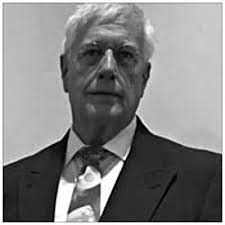KEEP ‘CRAF’ SAFE AND SECURE
By Molly Martin, from Airline Pilot, June 2009
submitted by LtCol. Stephen Avery USAF (ret.)
Members of the U.S. House of Representatives Subcommittee on Aviation explored the economic viability of the Civil Reserve Air Fleet Program (CRAF) during a hearing on May 13, and everyone in the room agreed on one thing: this program actually saves the government money—big money.
The U.S. Transportation Command (USTRANSCOM) estimates that CRAF has saved taxpayers somewhere in the range of $43 to $128 billion since President Harry Truman established the program back in 1951. Today, 34 passenger and cargo airlines—10 of them powered by ALPA pilots: AirTran, Alaska, ASTAR, Continental, Delta, Evergreen, FedEx Express, Hawaiian, Ryan, and United—commit a number of their widebody airplanes strictly to strengthen defense efforts by mobilizing troops and equipment on 24-48 hours’ notice.
While the U.S. government has activated a formal, large-scale CRAF response only twice (first for Operations Desert Shield and Storm, then for Operation Iraqi Freedom), airlines in the program have provided voluntary, on-demand air transportation services to the U.S. military for decades, granting the military access to the most cost-efficient transportation method for cargo and troops alike.
"Commercial is the cheapest way for us to fly," said USTRANSCOM Commander General Duncan J. McNabb, who testified at the hearing. "Even though they’ve only been called up twice, we’ve asked them to volunteer many times, and they have said, ‘Yeah, we have planes available, how many do you need?’" It’s a relationship that works well for both the government and participating airlines.
But, like any program, CRAF has gone through growing pains—particularly when the government sent commercial airliners into war zones. ALPA-represented Evergreen International pilots voiced concerns about the airline’s CRAF operations during the first Gulf War. Several of the issues they raised centered on the lack of insurance offered to pilots, little or no intelligence briefings, and the risk of exposure to chemical weapons without sufficient defense.
Rep. James Oberstar (D-Minn.), chairman of the House Transportation and Infrastructure Committee, respectfully asked McNabb how USTRANSCOM improved on these issues during the hearing. He requested a status report on previous obstacles to the CRAF program, which included coordination struggles between the Departments of Defense and Transportation, and payment issues for airlift services rendered, particularly with the ALPA- represented pilots at ATA Airlines.
"Now that we’ve had a surge operation for the last 7 years, we have basically had constant surge," explained McNabb. "A lot of the fixes are already in place." He discussed the US-TRANSCOM’s ability to forecast CRAF coverage. "We look out the next four or five months," he said. "We’d like to look to the future even more, because many of the carriers like to plan for the next 5 to 10 years.
" While the hearing focused on the economic impact, which is certainly a component that ALPA carefully tracks, the Association submitted written testimony focused on keeping the pilots who fly into these war zones safe and secure. The union addressed its No. 1 safety priority—fighting pilot fatigue— by urging Congress to close yet another loophole in the federal aviation regulations created especially for CRAF flying exceptions.
ALPA also asked Congress to focus on special training for the airline pilots who fly into military installations, whether in peacetime or into designated war zones. The union wants to ensure that the airlines and the government coordinate to adequately train civilian flight crews on unique navigation and communications procedures at military installations.
This special training may include executing only nighttime approaches in black-out conditions, for example, or flying extremely steep approach flight path angles and evasive maneuvers to avoid ground-launched ordnance or airborne encounters.
Other requests included arming crews with protective equipment needed to reduce the life-threatening hazards associated with chemical/biological warfare and equipping aircraft with technology to thwart MANPADS threats. The Association recommended that the Air Force assemble and maintain a type of "fly-away kit" that could be placed at strategic staging locations within the U.S.
The government could then issue the kits to crews of CRAF aircraft as they depart for their area of operations, whenever it may be.
By the Numbers
During the first Gulf War, pilots in the CRAF program flew 5,188 missions into the Middle East, accounting for 21 percent of the missions overall and carrying 64 percent of the passengers and 27 percent of the cargo during deployment. During Operation Iraqi Freedom, Commander General John W. Handy activated only passenger aircraft. These aircraft pilots, along with the CRAF volunteers already operating missions, flew more than 1,625 missions, moving 254,143 troops around the world.

Gordon Duff posted articles on VT from 2008 to 2022. He is a Marine combat veteran of the Vietnam War. A disabled veteran, he worked on veterans and POW issues for decades.
Gordon is an accredited diplomat and is generally accepted as one of the top global intelligence specialists. He manages the world’s largest private intelligence organization and regularly consults with governments challenged by security issues.
Duff has traveled extensively, is published around the world, and is a regular guest on TV and radio in more than “several” countries. He is also a trained chef, wine enthusiast, avid motorcyclist, and gunsmith specializing in historical weapons and restoration. Business experience and interests are in energy and defense technology.
ATTENTION READERS
We See The World From All Sides and Want YOU To Be Fully InformedIn fact, intentional disinformation is a disgraceful scourge in media today. So to assuage any possible errant incorrect information posted herein, we strongly encourage you to seek corroboration from other non-VT sources before forming an educated opinion.
About VT - Policies & Disclosures - Comment Policy



